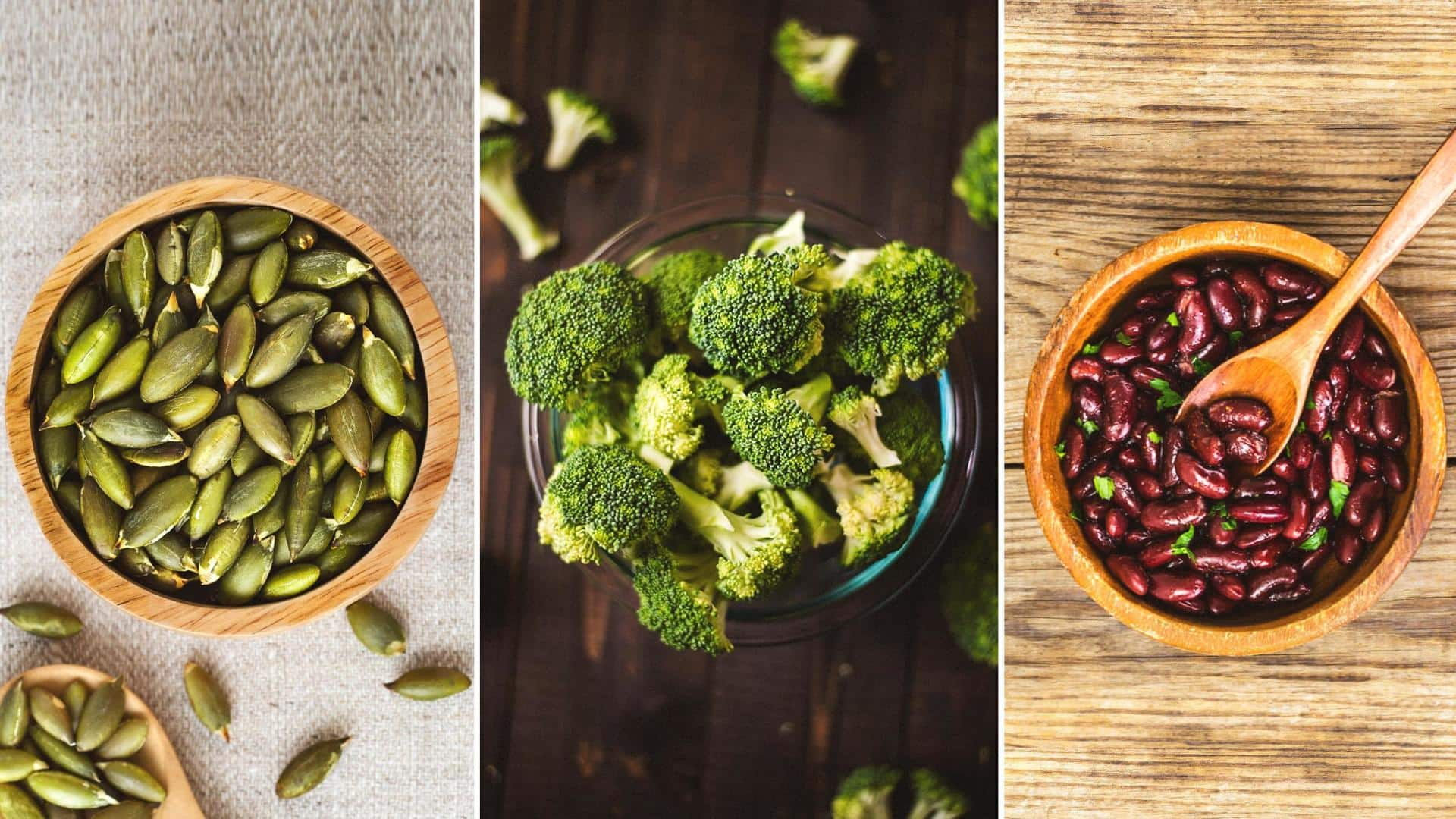
Overcome iron deficiency with these foods
What's the story
Our body needs a good amount of iron for several functions right from making hemoglobin to creating myoglobin that supports muscles with oxygen.
Any insufficiency or deficiency of this nutrient can trigger acute and chronic conditions like fatigue, anemia, various heart and lung diseases, pregnancy complications, etc.
Add these foods to your daily diet to steer clear of these problems.
Food 1
Spinach
Spinach is one of the best sources of iron as it contains 15% of the daily recommended value of this nutrient.
Just 100 gm of spinach can offer you 2.7 mg of iron.
While it holds a bad rap for its taste, especially among children, you can add this green leafy vegetable to their daily diet with these healthy and mouth-watering spinach recipes.
Food 2
Legumes
Legumes like beans, lentils, chickpeas, and soybeans are a fantastic source of iron, backed by research.
One cup (about 200 gm) of cooked lentils can provide approximately 37% of your daily iron needs.
Incorporating legumes like kidney beans or black beans into your daily diet is a great way to ensure you get a healthy dose of iron, especially for vegetarians and vegans.
Food 3
Pumpkin seeds
Scientifically, a 28 gm serving of pumpkin seeds offers 14% of the daily iron required by the body to function well.
These crunchy seeds can be savored with or without shells and they are so versatile that you can even put them in a bread, trail mix, or muffin to make them a part of your routine.
Food 4
Quinoa
Health freaks love quinoa because it is rich in nutrients including iron that keep their energy levels high.
Per facts, 185 gm of cooked quinoa can offer 2.8 mg of iron at once, which means you can fill up your daily iron intake by 16% if you consume it regularly.
Try some nutritious and delicious quinoa recipes to prevent iron deficiency.
Food 5
Broccoli
Besides featuring a good amount of potassium, vitamin C, protein, dietary fiber, and vitamin B6, broccoli also offers iron and can suffice your daily intake of this nutrient by 6%.
Offering 1 mg of iron per cup, regular consumption of this wholesome vegetable can keep you away from developing anemia.